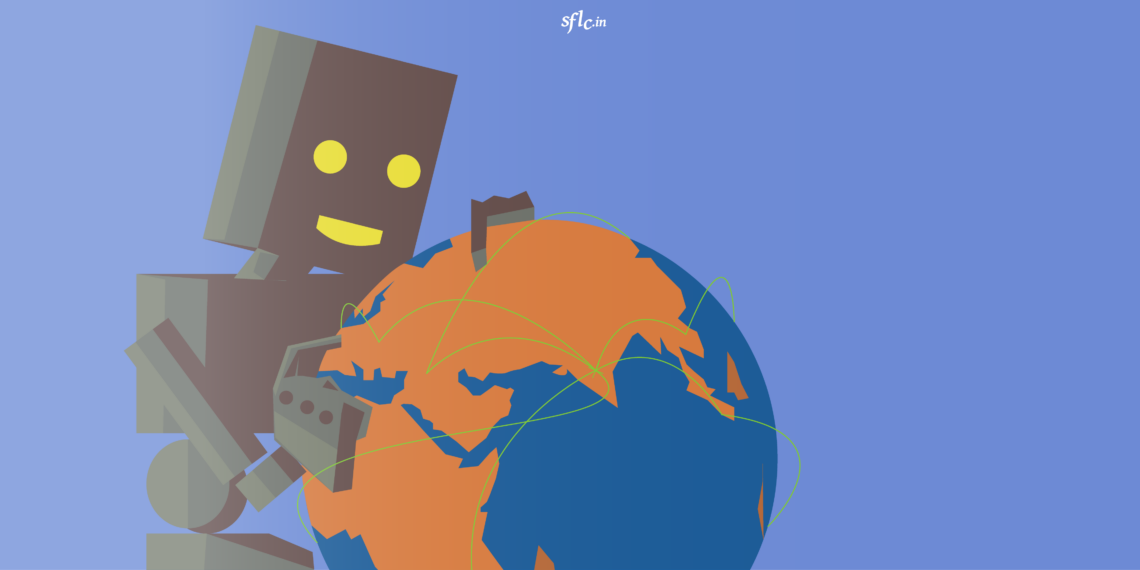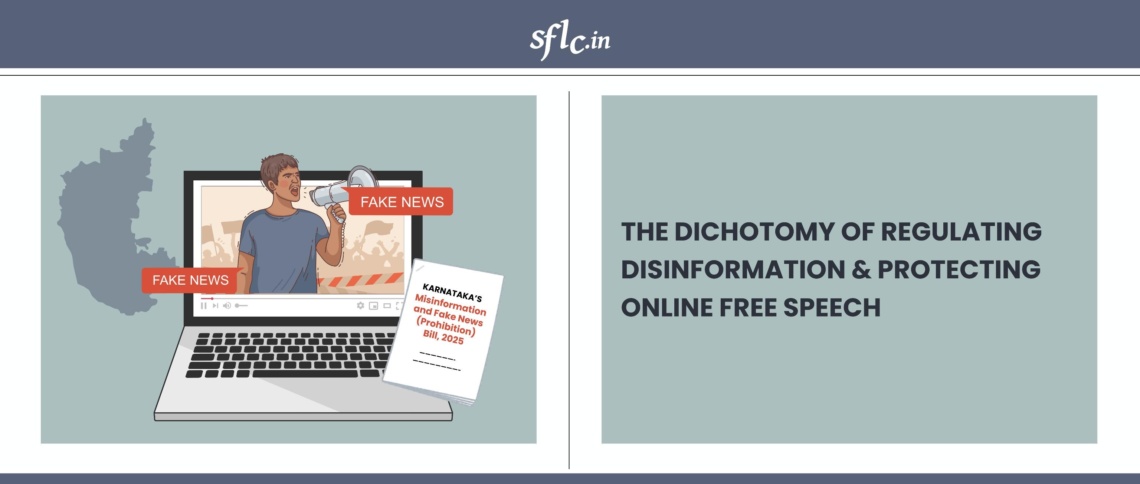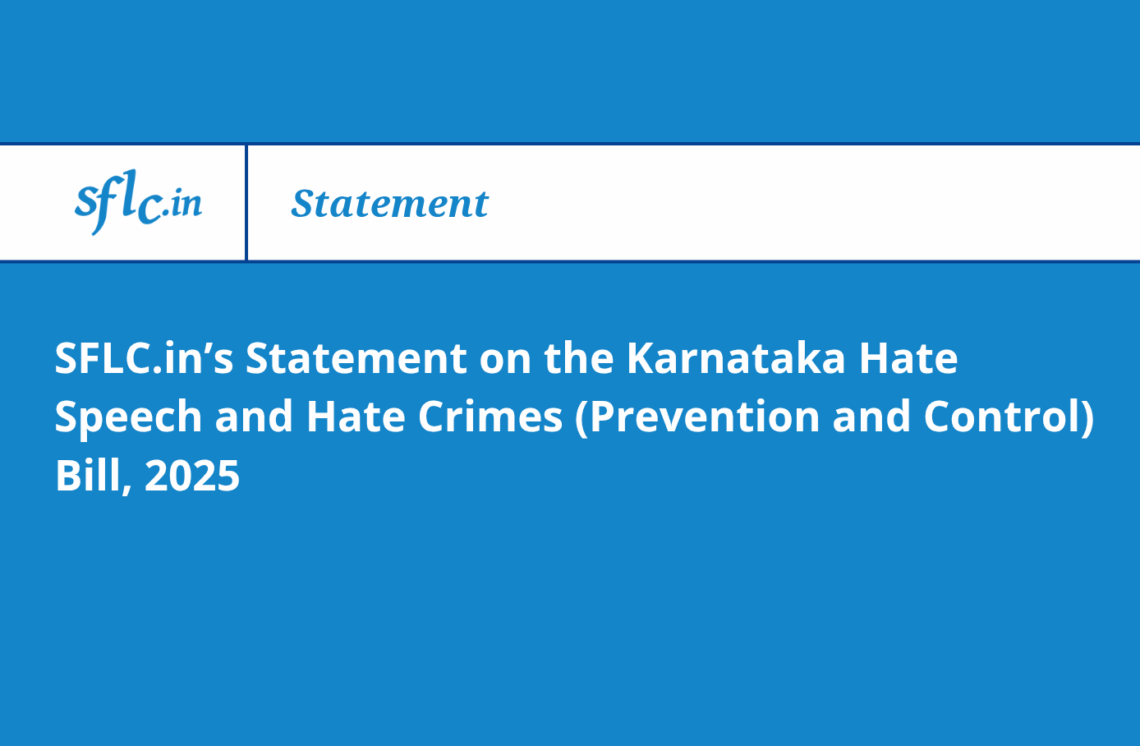Artificial Intelligence is undeniably gaining global prominence and various nations have begun deploying it in multiple fields such as defense, internal security, education, finance, etc. As diverse and vibrant as India’s population is, so are its socio-economic challenges that will prove to be a dynamic working ground for AI technologies. In 2018, NITI Aayog released a ‘National Strategy on Artificial Intelligence’, which adopted the principle of ‘Responsible AI’. [1]
The strategy paper highlights that despite its lead in the IT industry which could have given India the first-mover advantage in AI, the adoption of AI technologies in India has been lower than its counterparts such as China and the USA. However, AI adoption in India faces various challenges, such as a lack of adequate talent to work on emerging technologies, and low availability of computer infrastructure. Nevertheless, the pressing need to develop AI capabilities, which aligns with India’s sectoral leadership in the traditional IT industry as a whole, cannot be ignored. [2] Fortunately, India has timely identified the key to tackling these obstacles by resorting to global cooperative efforts that aim at fostering a collaborative approach to the development of AI tools in different fields. [3] International organizations such as the OECD have recommended that governments, especially developing countries like ours, should collaborate with multiple stakeholders across the world to advance the principles of responsible stewardship of trustworthy AI. [4] This article maps the global collaborations that India has entered into with various countries to develop a robust framework around AI and points out the potential issues with it.
INDIA AND THE EUROPEAN UNION (EU)
The India-EU Strategic Partnership, declared in the year 2004, set in motion a range of collaborations between the two regions in furthering their common interests of security, prosperity, and sustainable development. In July 2020, India and the EU endorsed this strategic partnership paving the way for a ‘Roadmap to 2025’ which includes agreements to advance research and innovation, share information and skills in artificial intelligence, and provide scientific support for regulatory and ethical issues. [5]
In April 2021, the two regions reaffirmed their shared principles and values at the 13th India-EU Joint ICT Working Group and agreed to hold a high-level Digital Investment Forum. This Forum is expected to bring together business leaders to encourage joint investments in digital markets and to take advantage of India and the EU’s competitive advantages to promote cooperation in the digital economy. Both parties agreed to increase cooperation across the board, especially in light of a Joint Task Force on AI. They also agreed to hold a joint workshop on platform regulation and explored the idea of forming an expert group that would regularly discuss issues related to personal data protection, antitrust regulations, and the taxation of large digital platforms. [6]
INDIA AND THE UNITED STATES (US)
US India Artificial Intelligence (USIAI) is an initiative of the Indo-US Science and Technology Forum (IUSSTF), established in March 2000. The USIAI presents a chance for the two powerful democracies to fortify their strategic alliance by concentrating on AI cooperation. It serves as a forum to offer suggestions for creating an AI workforce and advancing alliances. It lays down a four-step action plan on AI cooperation which includes Calls for Action, Roundtables, Thematic Workshops, and AI Workforce Summit. Such collaboration can take advantage of the already-existing economic and employment infrastructure by utilizing a sizable Indian workforce to support software programs from the United States. [7]
India and the US also held the Fourth Indo-US 2+2 Ministerial Dialogue on 11 April 2022 wherein both countries recognized the importance of AI in building resilient supply chains for a robust economy and defense and security. In this context, both countries endorsed the idea of holding a defense space and defense AI dialogue to materialize the aspirations of the commitments made under the said domains. [8]
INDIA AND GERMANY
The German Federal Ministry for Economic Cooperation and Development has launched a project dedicated to the open and sustainable development and deployment of artificial intelligence in Africa and Asia. Titled the ‘FAIR Forward: AI for All Program’, India is a major point of focus for the project. It recognizes the commonalities between Germany’s and India’s heterogeneous startup environment that could be leveraged to validate AI-based models, most notably in healthcare and agriculture. These are also in line with the advancement of local AI talent, ensuring the creation of jobs in both nations and the recruitment of young people trained in AI by the regional industry. [9]
INDIA AND FINLAND
In April 2022, the Indian government signed a joint declaration with Finland to establish a virtual network center on quantum computing. This collaboration would promote collaborative efforts between the nations and lead to the exchange of ideas, experiences, and learnings between both countries. It aims to create an environment for quantum researchers that will result in effective networking both on a regional and international basis. [10]
INDIA AND SINGAPORE
At the India-Singapore Technology Summit in February 2022, the two countries agreed to a Memorandum of Understanding (MoU) to advance their collaboration in science, technology, and innovation. The MoU calls for working together on initiatives that would boost “research, innovation, and technological development in a range of sectors, including advanced engineering and manufacturing; energy, climate, and natural resources; health; and other emerging technologies.” [11] An Implementation Agreement (IA), signed between Enterprise Singapore and the Department of Science and Technology, Government of India stipulated that funding would be made available to Indian and Singaporean businesses. The leaders promoted the deployment of AI and IoT in the construction and built environment sector for smarter and more sustainable cities. [12]
INDIA AND JAPAN
The Indo-Japan Emerging Technology and Innovation AIF was launched in 2019 to invest in technology start-ups in India related to AI and machine learning, with a targeted corpus of around 187 million USD to be raised from Japanese as well as Indian investors. [13]
The India-Japan Digital Partnership (IJDP) will focus on next-generation and emerging technologies such as AI, the Internet of Things (IoT), etc. The collaboration was the result of synergies and complementarities between Japan’s ‘Society 5.0’ initiative and India’s ‘Digital India’, ‘Smart City’, and ‘Start-up India’ projects. In October 2018, the Indian Ministry of Electronics and Information Technology (MeitY) and the Ministry of Economy, Trade and Industry (METI), Government of Japan signed a ‘Memorandum of Cooperation on India-Japan Digital Partnership’. Additionally, NITI Aayog and METI, Japan inked a Statement of Intent to “encourage and develop cooperation on Artificial Intelligence Technologies”. [14]
INDIA AND THE UK
The ‘Tech Alliance’ was formed by the two nations in 2018 with the declared goal of fostering research cooperation in the area of AI technologies. Other initiatives have been made to foster cooperation; the India-UK FutureTech Fest (FTF) was conducted in 2018 in New Delhi with an emphasis on both nations as technological leaders. [15]
India has achieved several significant victories under the ‘India-UK Technology Partnership’, which is financed by the UK’s Prosperity Fund. Modern AI-based software developed in the UK is anticipated to be used in government hospitals in India. The collaboration ensures trade and commerce prospects through the creation of ‘tech clusters’ that aim at building international links while also encouraging regional entities to reach their potential at its fullest. Other initiatives include the ‘UK-India Tech Hub’ and the ‘UK-India Tech Forum’ where the Indian Government will collaborate with the Government of the UK to promote digital skills and entrepreneurial knowledge to further promote employment. [16]
INDIA AND AUSTRALIA
The Australia-India Cyber and Critical Technology Partnership (AICCTP) is a four-year-long arrangement between India and Australia with a grant of 13 million EUR to contribute to the global development of AI, next-generation telecommunications (5G/6G), Internet of Things (IoT), quantum computing, synthetic biology, blockchain, and big data. [17] In 2019, the two nations hosted their first-ever yearly dialogue, which featured a discussion on a variety of subjects, including “managing technological disruption and opportunities for bilateral cooperation”. [18]
INDIA AND THE UNITED ARAB EMIRATES (UAE)
In the year 2018, the Minister for Artificial Intelligence, UAE and Invest India entered into a Memorandum of Understanding to encourage investment in AI startups and research activities in partnership with the private sector. A UAE-India Working Committee was convened under the partnership which identified three main themes of this collaboration, which are “open engagement, fostering innovative ecosystems, and looking to the future”. [19] The Working Committee would also help develop regulatory frameworks that will be favorable to both nations and in pace with technological developments.
In February 2022, India and UAE signed a bilateral Comprehensive Economic Partnership Agreement (CEPA). This arrangement envisions strengthening multiple sectors such as investments, research technology transfer, artificial intelligence, and Industry 4.0 enabling technologies. [20]
INDIA AND THE UNITED NATIONS (UN)
Under the UN’s Business and Human Rights in Asia Program (B+HR Asia), the United Nations Development Programme (UNDP) commissioned a report in India that examined the effects of enterprises’ use of AI solutions on workers’ and consumers’ human rights. The report, which was published in July 2022, discusses the risk areas raised by the deployment and offers mitigation strategies. The UN SDGs 08 and 09, which focus on ‘decent work and economic growth’ and ‘industry, innovation, and infrastructure’, respectively, are included in this topic. The research also includes a policy brief that describes how to reduce risks in the deployment of artificial intelligence in four different industries: finance, healthcare, retail, and gig work. The report suggests a host of measures that the State can take to mitigate the impact on consumers and workers: these include incentives, capacity-building, and creating conducive environments for all stakeholders. It further creates a risk-assessment toolkit for all businesses, to gauge harm to human rights as a result of using AI. [21]
MULTILATERAL COOPERATIONS
The Global Partnership on Artificial Intelligence (GPAI) was founded in 2020 and India joined it at its inception as a founding member. At present, the partnership comprises 25 members and aims at a multi-stakeholder initiative on artificial intelligence. The alliance aims to support the development and use of AI based on human rights, inclusion, diversity, innovation, and economic growth and to address the United Nations Sustainable Development Goals. Further, it seeks to bring together engaged minds and experts from science, industry, civil society, governments, international organizations, and academia to promote international cooperation in order to bridge the gap between theory and practice on AI. [22] With India assuming the position of the Chair of GPAI, since November 2022, the global lens of international AI partnerships has been focused towards home.
The Quadrilateral Security Dialogue (Quad) is yet another alliance between the US, Japan, Australia, and India. It conceptualizes a shared vision for a Free and Open Indo-Pacific and encourages technology systems built on trust, integrity, and resilience. It also aims to reduce barriers to data and knowledge sharing for research activities through technological cooperation under the Critical and Emerging Technology Working Group. In May 2022, the Quad Investors Network, an independent consortium of investors was launched to increase access to capital for critical and emerging technologies within and across the Quad.
CONCLUSION
It is undeniable that international collaborations come with numerous benefits in the AI sector. However, there remain potential issues that policymakers need to address before placing heavy reliance on foreign nations for investment, funding, or research and development.
Firstly, it is necessary to consider the privacy concerns such collaborations might entail, with the various loopholes that Indian legal provisions have regarding privacy breaches and personal data protection. The recently passed Digital Personal Data Protection Act, 2023 refuses to address privacy and processing concerns that may arise from emerging and autonomous technologies. Further, without strong and enforceable regulations on non-personal data, which the Draft National Data Governance Framework Policy attempted to create, the privacy concerns in autonomous processing will only mount. It is necessary that India strengthen its data protection laws to ensure compatibility with partner countries, such as the European Union’s Global Data Protection Regulation (GDPR), while preserving the fundamental rights of individuals.
The issues raised by NITI Aayog regarding the lack of skills in emerging technologies require a multifaceted solution, most importantly building an equally strong AI infrastructure in the country upheld by indigenous talent, rather than complete reliance on foreign assistance. [23] These considerations must play a decisive role in the execution of these partnerships outside mere dialogues and paperwork.
FOOTNOTES
[1] National Strategy for Artificial Intelligence #AIFORALL, NITI Ayog (Jun. 2018), https://niti.gov.in/sites/default/files/2019-01/NationalStrategy-for-AI-Discussion-Paper.pdf.
[2] Ibid at 71,72.
[3] Ibid at 88.
[4] Recommendation of the Council on Artificial Intelligence, Organization for Economic Co-operation and Development (OECD) (May 22nd, 2019), https://legalinstruments.oecd.org/en/instruments/OECD-LEGAL-0449.
[5] India-EU Strategic Partnership: A Roadmap to 2025, Ministry of External Affairs (Jul. 15th, 2020), https://www.mea.gov.in/bilateral-documents.htm?dtl/32828/IndiaEU+Strategic+Partnership+A+Roadmap+to+2025.
[6] India-EU Working Group Advances Joint Commitment for Digital Collaboration, European Commission (Apr. 23rd, 2021), https://digital-strategy.ec.europa.eu/en/news/india-eu-working-group-advances-joint-commitment-digital-collaboration.
[7] Enabling AI Innovation: Addressing Challenges and Opportunities at the Interface of Science, Technology and Society, IUSSTF U.S. – India Artificial Intelligence (USIAI) Initiative, https://usiai.iusstf.org/documents/280363/0/IUSSTF_USIAI_Initiative_Presentation_Final.pdf/57c2049e-8fb0-cea7-bae6-0ba7116d007c?t=1615442437751.
[8] Media Note, Fourth Annual U.S. – India 2+2 Ministerial Dialogue, US Department of State (Apr. 11th, 2022), https://www.state.gov/fourth-annual-u-s-india-22-ministerial-dialogue/.
[9] Gaurav Sharma, ‘FAIR Forward: AI for All’ initiative is contributing to accelerate the Artificial Intelligence ecosystem for Indian and German start-ups, German Indian Startup Exchange Program (Jul 26th, 2021) https://ginsep.co/fair-forward-ai-for-all-initiative-is-contributing-to-accelerate-the-artificial-intelligence-ecosystem-for-indian-and-german-startups/.
[10] India & Finland Discuss Possible Areas of Co-operation in Quantum Computing for Virtual CoE, PIB Press Release, Ministry of Science and Technology (Apr. 20th, 2022), https://pib.gov.in/PressReleaseIframePage.aspx?PRID=1818250.
[11] Cabinet approves Memorandum of Understanding (MoU) between the Department of Science and Technology, India and Ministry of Trade and Industry, Singapore on Cooperation in the fields of Science, Technology and Innovation, PIB Press Release, Ministry of Science and Technology, https://pib.gov.in/PressReleasePage.aspx?PRID=1837900
[12] Ibid.
[13] Brief Note on India-Japan Bilateral Relations, Ministry of External Affairs, https://www.mea.gov.in/Portal/ForeignRelation/India-Japan_Bilateral_Brief_feb_2020.pdf
[14] List of Announcements/Agreements signed between India and Japan during visit of Prime Minister to Japan, PIB Press Release, Prime Minister’s Office (Oct. 29th, 2018), https://pib.gov.in/PressReleasePage.aspx?PRID=1551160.
[15] Arnab Mitra, India-US-UK Alliance in AI can Boost Global Tech, India Global Business (Oct. 19th, 2020), available at: https://www.indiaglobalbusiness.com/the-big-story/india-us-uk-alliance-in-ai-can-boost-global-tech.
[16] UK-India Tech Forum, techUK, https://fco.tal.net/vx/mobile-0/appcentre-ext/brand-2/candidate/so/pm/4/pl/1/opp/11825-UK-India-Tech-Hub-Deputy-Director-International-Tech-Hub-NetworkC5-Mumbai- New-Delhi/en-GB.
[17] Australia-India Cyber and Critical Technology Partnership (AICCTP), Department of Foreign Affairs and Trade, Australian Government, https://www.internationalcybertech.gov.au/our-work/AICCTP.
[18] India-Australia Bilateral Economic Partnership, NITI Aayog, https://www.niti.gov.in/index.php/ic/india-australia-bilateral-economic-partnership.
[19] Invest India and UAE Ministry sign MoU for technological cooperation, PIB Press Release, Ministry of Commerce and Industry (Jul. 27th, 2018), https://pib.gov.in/Pressreleaseshare.aspx?PRID=1540480.
[20] Cabinet approves Memorandum of Understanding between India and United Arab Emirates (UAE) on Cooperation in the field of Industries and Advanced Technologies, PIB Press Release, Cabinet (Jun. 8th, 2022), https://pib.gov.in/PressReleasePage.aspx?PRID=1832176.
[21] Artificial Intelligence and Potential Impacts on Human Rights in India, UNDP India (Jul. 5th, 2022), https://www.undp.org/india/publications/artificial-intelligence-and-potential-impacts-human-rights-india
[22] Ministry of Electronics and Information Technology, Joint Statement from founding members of the Global Partnership on Artificial Intelligence, Global Partnership on AI (GPAI), https://www.meity.gov.in/writereaddata/files/Joint_Statement_on_Launch_GPAI.pdf.
[23] Supra note 1.




